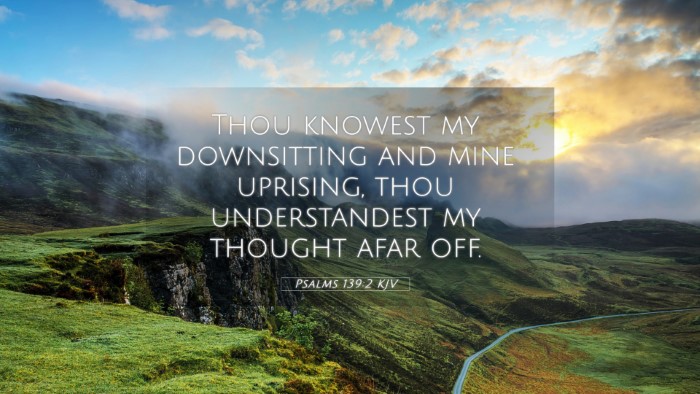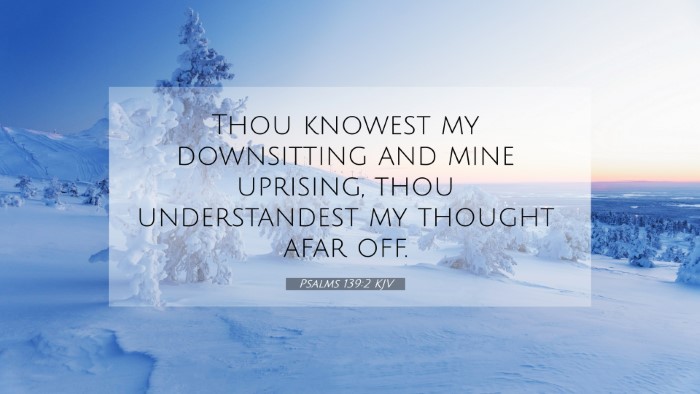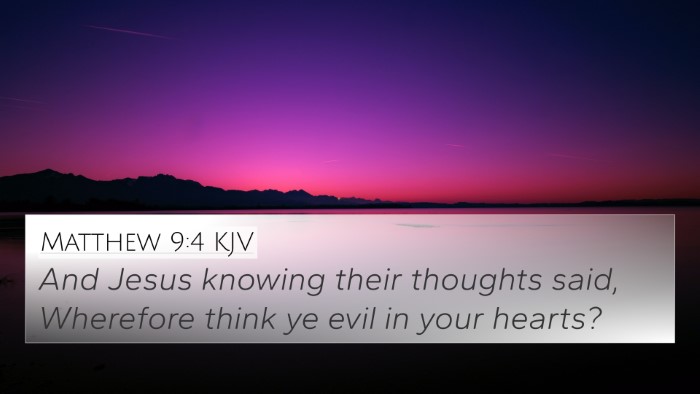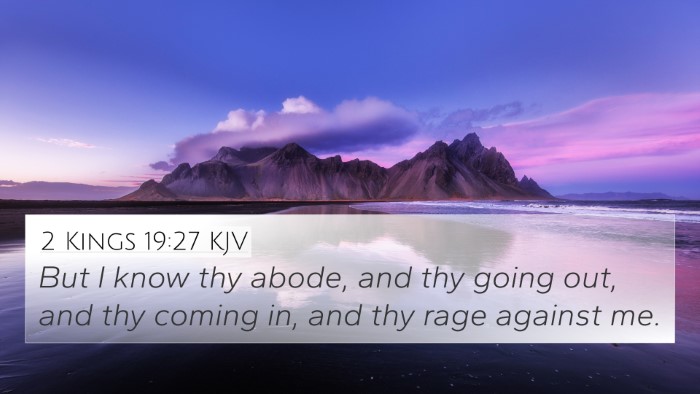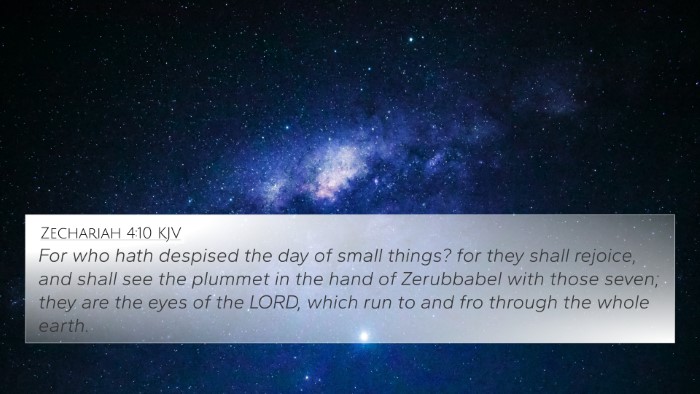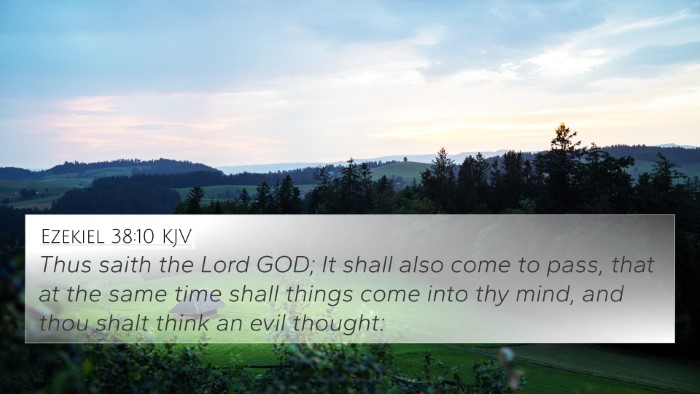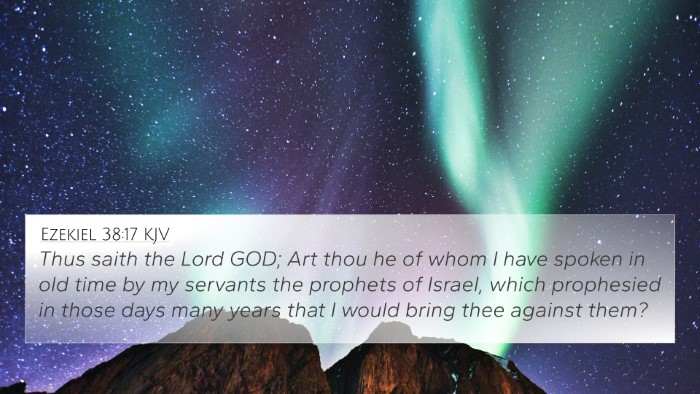Psalms 139:2 states:
“You know when I sit and when I rise; you perceive my thoughts from afar.”
This profound verse invites us into a deeper understanding of God's omniscience—His ability to know us fully, even to the most intimate details of our lives.
Meaning and Interpretation
This verse emphasizes two key aspects of God's knowledge and presence:
- God's Awareness of Our Actions: The phrase "when I sit and when I rise" reflects the ordinary events of life. It underscores that God observes not only our major actions but also the minutiae of our daily lives, indicating His constant vigilance.
- God's Insight into Our Thoughts: The second part of the verse, "you perceive my thoughts from afar," highlights God's ability to understand our innermost thoughts and feelings, even before we express them. This reinforces the notion of God's omnipotence and the relationship He shares with humanity.
Commentary Insights
Matthew Henry's Commentary points out that God's knowledge is not just passive observation but involves a deep understanding of our hearts. He knows our motives, desires, and intentions, which serves as both comfort and caution for believers.
Albert Barnes' Notes delve into the idea of God knowing us from a distance. He explains that God's omniscience transcends physical limitations, and His knowledge encompasses every aspect of our existence. Barnes notes that this insight emphasizes God's personal involvement in our lives.
Adam Clarke's Commentary further elaborates on the implications of God's knowledge. He reflects on how such awareness can lead to profound reverence and the need for believers to live in a manner consistent with God's understanding of them.
Cross-References
Psalm 139:2 connects deeply with various other Scriptures that reflect themes of God's omniscience and human awareness:
- Hebrews 4:13: "Nothing in all creation is hidden from God's sight; everything is uncovered and laid bare before the eyes of Him to whom we must give account."
- Proverbs 15:3: "The eyes of the LORD are everywhere, keeping watch on the wicked and the good."
- Jeremiah 17:10: "I the LORD search the heart and examine the mind, to reward each person according to their conduct, according to what their deeds deserve."
- 1 Samuel 16:7: "But the LORD said to Samuel, 'Do not consider his appearance or his height, for I have rejected him. The LORD does not look at the things people look at. People look at the outward appearance, but the LORD looks at the heart.'
- Matthew 6:8: "Do not be like them, for your Father knows what you need before you ask Him."
- Psalm 44:21: "Would not God have discovered it, since he knows the secrets of the heart?"
- Isaiah 66:18: "And I, because of their actions and their imaginations, am about to come and gather all nations and tongues, and they will come and see my glory."
- Acts 1:24: "Then they prayed, 'Lord, you know everyone's heart. Show us which of these two you have chosen...'
- Job 31:4: "Does he not see my ways and count my every step?"
- Lamentations 3:40: "Let us examine our ways and test them, and let us return to the LORD."
Thematic Connections
The verse and its cross-references exhibit a strong theme of God's omniscience that runs throughout Scripture. Here are some thematic connections found within the Bible:
- Divine Knowledge: The Bible consistently portrays God as knowledgeable of every creature and circumstance, reinforcing God's sovereignty.
- Human Accountability: The knowledge God possesses influences the way we should conduct our lives, as we are called to account for our actions.
- Intimacy with God: The assurance of God knowing our every thought encourages believers to develop a personal relationship with Him.
- Reverence and Worship: Understanding God's incomprehensible knowledge can lead to worship and a deeper desire to live aligned with His will.
Conclusion
Psalms 139:2 provides a stunning revelation about God’s omniscience, inviting believers to reflect on the nature of their relationship with Him. The myriad of connections between this verse and others throughout the Scriptures highlights the importance of understanding divine knowledge in the context of our lives and actions.
The study of cross-references related to this verse can deepen one's understanding of the overarching themes in the Bible, demonstrating the interconnectedness of Scripture. Engaging with these insights through cross-referencing Bible study methods offers a pathway to a richer theological framework.
Tools for Cross-Referencing
For those seeking to explore this further, several tools for Bible cross-referencing can enhance your study:
- Bible Concordance: Helps locate passages and themes efficiently.
- Bible Cross-Reference Guide: Offers structured references for understanding connections.
- Cross-Reference Bible Study: Encourages thematic exploration across the biblical texts.
- Bible Reference Resources: Gather comprehensive materials that facilitate deeper exploration.
- Bible Chain References: Follows thematic connections through Scripture sequentially.
In summary, the exploration of Psalms 139:2 through public domain commentaries provides a rich landscape for understanding God's omniscience and the implications of His awareness in our lives. The use of cross-references enriches the study, unveiling the interconnected nature of biblical teachings.

